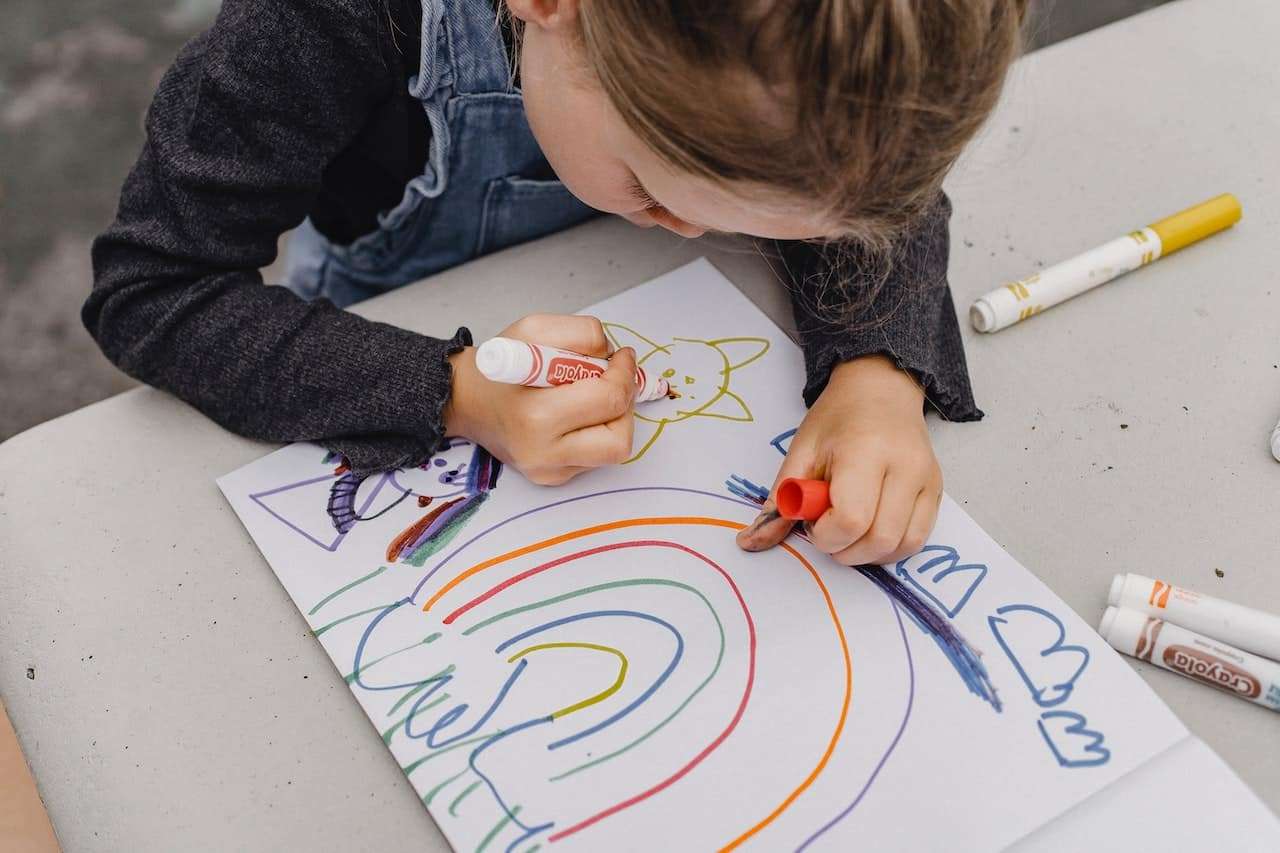Everyone has a hidden talent and abilities that they may not even be aware of. It could be anything from being an excellent writer to having a great singing voice.
But the issue is that many of us frequently are unaware of what this discipline is. First, it’s important to understand what we mean by “hidden talent.”
A hidden talent is something that you are naturally good at but may not have explored or developed yet.
It’s a skill or ability that you have but may not have recognized or acknowledged as a talent.
Hidden talents can be social or personal, technical or artistic, intellectual or physical.
In this article, we’ll explore 300 unique examples of hidden talent as well as the exact steps you need to take to uncover yours.
We’ll also provide you with a list of 30 introspective and self-reflective questions that can make you discover your talent right away.
Take your time to answer those questions and I can assure you that, if you answer those questions with complete honesty, your talent will be immediately obvious to you.
By the time you finish reading this article, you’ll be able to uncover a talent that has been dormant within you since birth. You will gain clarity on your exact hidden strengths and learn how to transform them into something remarkable.
A List Of 300 Hidden Talent Examples
- Conflict Resolution
- Making Research
- Teaching
- Acting
- Boxing
- Solving Puzzles
- Crochets
- Cheerleading
- Cycling
- Skating
- Drawing
- Wood Carving
- Fishing
- Football
- Gardening
- Animal Husbandry
- Hand Lettering
- Home Decoration
- Video Gaming
- Pretending
- Nail Artistry
- Photography
- Poetry
- Dancing
- Scuba diving
- Swimming
- Wind Surfing
- Negotiating
- Persuading
- Public Speaking
- Approaching
- Sewing
- Holding Conversation
- Sketching
- Driving
- Electronics Repair
- Voice Over Artistry
- Photo/Video Editing
- Video Shooting
- Giving Meaningful Opinions
- Graphics Design
- Programming
- Event Planning
- Critical Thinking
- Writing
- Journalism
- Sprinting
- Knitting
- Cooking
- Archery
- Calligraphy
- Carpentry
- Cartooning
- Ceramics
- Beekeeping
- Coding
- Composing Music
- Digital Art
- DJing
- Dog Training
- Embroidery
- Fashion Design
- Fishing
- Fly Tying
- Glassblowing
- Graffiti Art
- Hair Styling
- Home Brewing
- Juggling
- Leatherworking
- Lock Picking
- Magic Tricks
- Makeup Artistry
- Metalworking
- Mountain Climbing
- Painting
- Paper Craft
- Parkour
- Philosophy
- Comedy
- Pinball
- Podcasting
- Pottery
- Powerlifting
- Puppetry
- Rapping
- Reflexology
- Sailing
- Sculpture
- Skateboarding
- Skiing
- Soap Making
- Songwriting
- Spoken Word Poetry
- Stand-Up Comedy
- Storytelling
- Tabletop Gaming
- Taxidermy
- Textile Art
- Toy Making
- Travel Writing
- Videography
- Vlogging
- Woodworking
- Yoga & Tai Chi
- Acting as a Mime
- Aerial Acrobatics
- Airbrushing
- Animal Training
- Anthropology
- Aquascaping
- Astronomy
- Auto Mechanics
- Aviation
- Bagpiping
- Baking
- Barbecue Grilling
- Bartending
- Beading
- Blacksmithing
- Blogging
- Body Painting
- Botany
- Bowling
- Breakdancing
- Cake Decorating
- Candle Making
- Capoeira
- Caricature Artistry
- Cartoon Voice Acting
- Caving
- Circuit Training
- Climbing Trees
- Comedy Writing
- Computer Repair
- Experimenting
- Contract Negotiation
- Cooking Vegan Meals
- Cosplay
- Analyzing Data
- Animal Rescue
- Animation
- App Development
- Aquatic Sports
- Art Restoration
- Auto Racing
- Baking
- Bartering
- Belly Dancing
- Bike Maintenance
- Bodybuilding
- Bookbinding
- Bouldering
- Bridge Building
- Building Treehouses
- Business Consulting
- Calligraphy Writing
- Candle Making
- Canning
- Resource Management
- Caricature Drawing
- Carving Stone
- Cat Training
- Ceramic Art
- Cheerful Listening
- Chess Playing
- Children’s Book Writing
- Cleaning
- Coffee Brewing
- Color Theory
- Competitive Eating
- Computer Programming
- Creative Writing
- Cricket
- Cross-stitching
- Cryptography
- Cycling Long Distance
- Darts Playing
- Data Visualization
- Debate
- Sketching
- Tennis
- Curiosity
- Clothing Art
- Detecting Lies
- Digital Painting
- Directing Films
- Dissecting Animals
- DIY Electronics
- Dog Grooming
- Dog Walking
- Drumming
- Drywalling
- Music Production
- Electronics Hacking
- Emergency Preparedness
- Pressure Management
- Engraving
- Equestrianism
- Ethical Hacking
- Event Marketing
- Fabric Dyeing
- Fabric Painting
- Face Painting
- Falconry
- Farming
- Modeling
- Figure Skating
- Film Editing
- Financial Planning
- Fire Eating
- Fitness Coaching
- Flower Arranging
- Flying Planes
- Video Gaming
- Folk Dancing
- Food Styling
- Foraging
- Foreign Languages Learning
- Forensic Science
- Fortune Telling
- Imaginative Thinking
- Game Designing
- Gemstone Cutting
- Genealogy Research
- Geocaching
- Glass Painting
- Glider Flying
- Golfing Accuracy
- Graphic Designing
- Website Design
- Tech Proficiency
- Typing speed and accuracy
- Cyber Security
- Sound Engineering
- Strategic Thinking
- Retentive Memory
- Stress Management
- Flexibility and Adaptability
- introspection
- Time Management
- Multitasking
- Charisma
- Social Intelligence
- Team Building
- Collaboration
- Sales Closing
- Relationship Building
- Likeability
- Networking
- Taking Online Courses
- Browsing
- Knitting
- Crocheting
- Meditation
- Dot Connecting
- Fundraising
- Photographic Memory
- Ambidexterity
- Synesthesia
- Polyglotism
- Savant Syndrome
- Eidetic Memory
- Telekinesis
- Teleportation
- Levitation
- Precognition
- Telepathy
- Clairvoyance
- Clairaudience
- Empathy
- Psychokinesis
- Astral Projection
- Lucid Dreaming
- Olfactory Acuity
- Absolute Pitch
- Intuitive Musical Ability
- Unusual Vocal Switching
- Tetrachromacy
- Syncope
- Hyperthymesia
- Death Faking
- Solving Equation Offhand
- Memorising Long Text
- Speed Reading
- Time Limit Solving
- Unusual Flexibility
- Unusual Endurance
- Multiple Object Balancing
- Extreme Physical Speed
- Unusual Agility
- Storytelling Ability
- Acrobatic Ability
- Accurate Mimicking
- Impersonation Makeover
- Names Memory
- Faces Memory
- Influencing
- Accurate Plan Execution
- Optimal Product Sourcing
How To Find Your Hidden Talent
Everyone has a talent, whether they realize it or not. However, discovering your hidden talent can be a challenging and daunting task.
It may require some self-reflection, exploration, and experimentation to uncover something that you are passionate about and have a natural aptitude for.
In this section, we will discuss some tips and strategies that can help you find your hidden talent, and unlock your full potential.
Reflect On Your Past
Reflecting on your past experiences can be a helpful way to discover hidden talents that you may not have recognized before.
Consider your background and early years. What were you good at, what did you do frequently as a child, and what were you renowned for?
Reflecting on your past might often be all it takes to bring out your hidden talents and other interests, which can then be explored further.
For example, you may find that you have always enjoyed problem-solving, drawing, or browsing the internet without getting bored or tired.
Taking the time to reflect on your past can be a valuable tool for self-discovery and can help you find a hidden talent that you can develop and enjoy in the present and future.
Reflect On Yourself
Self-reflection is a powerful tool for discovering your talents. It involves taking time to look inward and assess your interests, passions, and abilities.
Start by asking yourself some questions, such as:
- What do I enjoy doing in my free time?
- What activities do I find myself naturally drawn to?
- What activities do I lose track of time doing?
- What types of tasks do I feel confident doing?
Make a list of your answers and spend some time reflecting on them. Look for patterns or common themes that emerge.
For example, if you enjoy writing, painting, and playing music, you might have a talent for creative expression.
If you find yourself naturally drawn to organizing events or leading group activities, you might have a talent for leadership or organization.
It’s important, to be honest with yourself during this process. Don’t shy away from acknowledging areas where you may need improvement or where you may not have a natural talent.
This self-reflection can help you identify areas where you may want to focus your efforts to develop new skills or enhance your natural talents.
Remember that discovering your talents is an ongoing process. It’s okay if you don’t have all the answers right away.
Take your time, be patient with yourself, and keep an open mind to new experiences and opportunities.
Try New Things
You should actively and creatively search for your inherent gift if you haven’t already; you’re not likely to discover it by being idle or reclining on a couch.
For example, painting, volleyball, or playing musical instruments are great talents but if you’ve never done any of these activities in your life, you’ll never know if you have a natural talent for them.
Imagine if Christiano Ronaldo had stayed in school and never played football, or if Leonardo da Vinci had never tried his hand at painting. Make it a point to try something new every week or two.
You might not find something right away that you are particularly talented at, but the more disciplines you attempt, the more likely you are to find something that suits you.
To find out if you have a hidden talent or inclination towards something, try out several activities like pitch games, fishing, or playing musical instruments.
Additionally, ask yourself what you are preoccupied with and what topics other people are tired of hearing you talk about to identify similar abilities and talents.
Try to look deeper; perhaps you have a talent for telling stories or narrative analysis. You could start your own blog or YouTube channel where you could analyze different TV series or express your own opinion on films.
Even if you are obsessed with something difficult to connect to talent just yet, like watching TV series. The foundation of your talent discovery remains to attempt new things.
Take A Personality Test
Another way to discover your talent is by taking online assessments. These assessments can help you gain a better understanding of your natural abilities, skills, and preferences.
Many websites offer free talent and personality assessments that are designed to help individuals identify their strengths and weaknesses.
Some popular online assessments include the Myers-Briggs Type Indicator (MBTI), the CliftonStrengths assessment, and the DISC assessment.
These assessments can help provide insight into your natural strengths and abilities. However, it’s important to remember that they are not definitive.
They are just one tool in the process of discovering your talents and should be used in combination with other methods, such as self-reflection and seeking feedback from others.
In the end, the goal is to offer you an idea of what new area you should think about exploring and the potential that can be tapped from it.
Request Feedback
Getting feedback from friends and family is a valuable way to discover your hidden skills and talents.
Sometimes, we are so used to doing things that come naturally to us that we don’t recognize them as skills or talents.
But when we share our passions and interests with our loved ones, they can help us see the value and uniqueness of our abilities.
Friends and family members have unique perspectives on our lives, and they often notice things about us that we may not even be aware of.
They can point out patterns in our behavior, interests, and strengths that we might not have recognized on our own.
By talking to them about our hobbies, projects, and interests, we can get their feedback and discover our hidden talents.
For example, if you love to draw and have been doing it since you were a child, you may not think of it as a special talent because it comes so naturally to you.
However, if you share your drawings with your friends and family, they may point out your unique style, attention to detail, or the way you capture emotions in your art.
These observations can help you see that you have a special talent for drawing that you might want to develop further.
Additionally, getting feedback from friends and family can be a confidence booster.
When we receive positive feedback and recognition from people we care about, it can encourage us to pursue our interests with more passion and dedication.
30 Self-Reflective Questions To Discover Your Talent Right Away
Presented below is a set of 30 introspective questions that can help uncover your hidden potential. Take your time to reflect on each question and honestly jot down your answers and then connect the dots and voila! You may just have discovered your hidden talent. So, grab your pen and paper.
- What are some things I enjoy doing in my free time?
- What comes naturally to me?
- What do people often compliment me on?
- What types of tasks do I find myself drawn to?
- What activities do I lose track of time doing?
- What am I passionate about?
- What hobbies have I enjoyed in the past?
- What did I enjoy doing as a child?
- What are some skills or abilities that I have always wanted to learn?
- What types of activities give me a sense of accomplishment?
- What are some things I find myself daydreaming about?
- What types of problems do I enjoy solving?
- What types of books or articles do I enjoy reading?
- What types of people do I enjoy being around?
- What makes me feel energized and motivated?
- What types of activities do I find myself naturally gravitating towards?
- What types of activities do I find challenging but enjoyable?
- What types of tasks do I find myself doing even when I don’t have to?
- What are some things I have always wanted to try but have been too afraid to attempt?
- What are some things that make me unique?
- What types of challenges do I enjoy tackling?
- What are some things that I am naturally curious about?
- What are some things I have accomplished in the past that made me feel proud?
- What types of activities make me feel like I am in flow?
- What are some things I have always wanted to create or build?
- What types of activities do I find myself teaching others?
- What are some things I am good at that I often take for granted?
- What types of activities do I find myself being asked to do by others?
- What are some things that I have always been interested in but have never pursued?
- What are some things I wish I had more time to do?
Closing Thoughts On Finding Your Hidden Talent
While self-reflective questions can be a helpful tool for discovering hidden talents, it’s important to acknowledge that the process of uncovering our true potential is ongoing.
Some people may find it difficult to answer these questions honestly, either due to a lack of self-awareness or fear of exploring new possibilities.
In addition, our talents and interests can evolve and change over time, meaning that what we thought was our hidden talent may not be our true calling.
Despite these challenges, the process of self-discovery is a valuable and worthwhile pursuit.
We can gain a deeper understanding of ourselves and our potential by taking the time to reflect on our passions, interests, and strengths.
It is vital to approach this process with a positive mindset, a willingness to explore new possibilities and a dedication to continuous growth and learning.
Even if we don’t immediately recognize our hidden talent, the process of self-reflection can help us clarify our goals, values, and priorities, leading us to a clearer view of our untapped potential.
More From Fieracad
Discover some incredible ways to improve your relationship.
Check out how to enhance your health and well-being.
Discover the true essence of your being with our wealth of posts on spirituality






